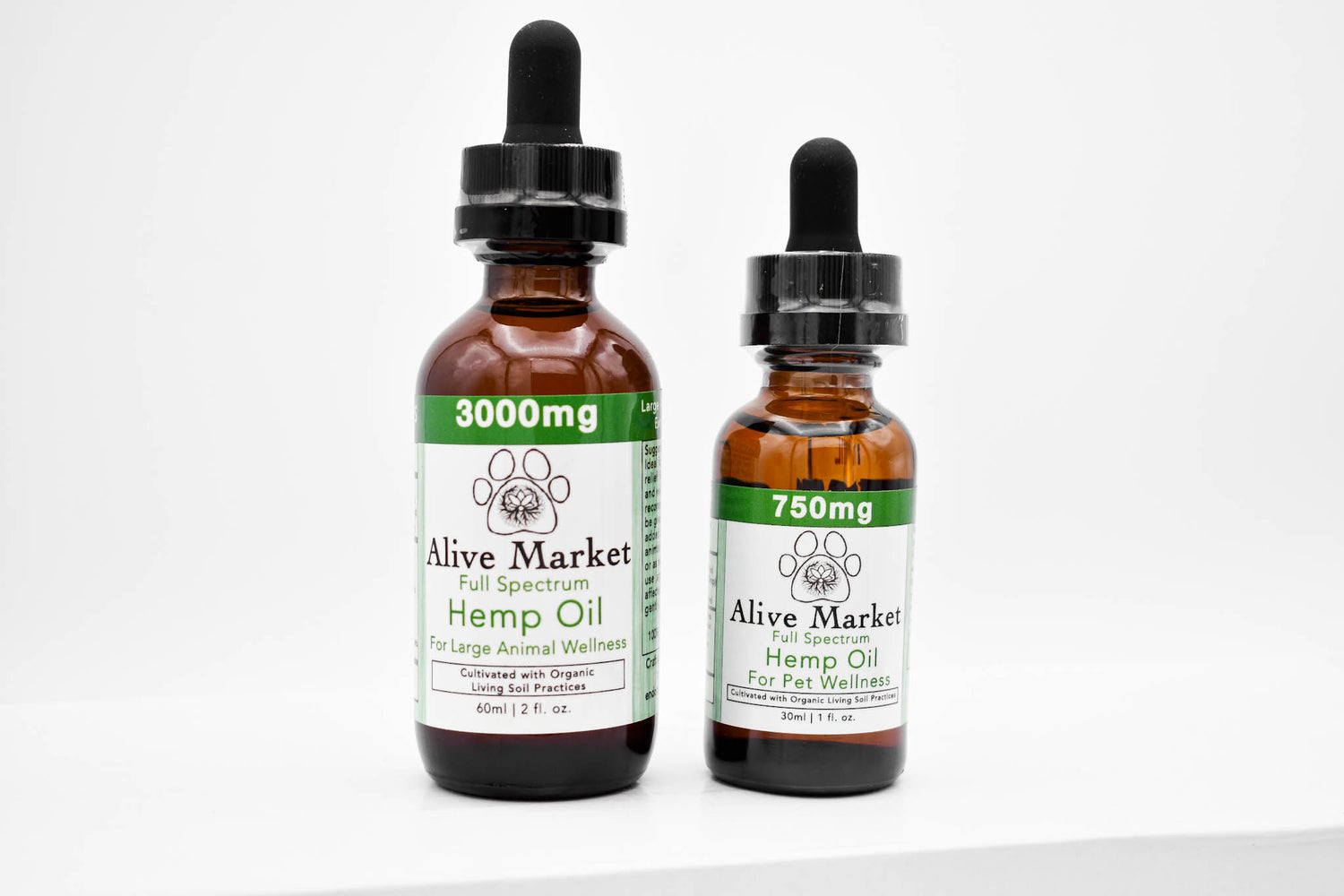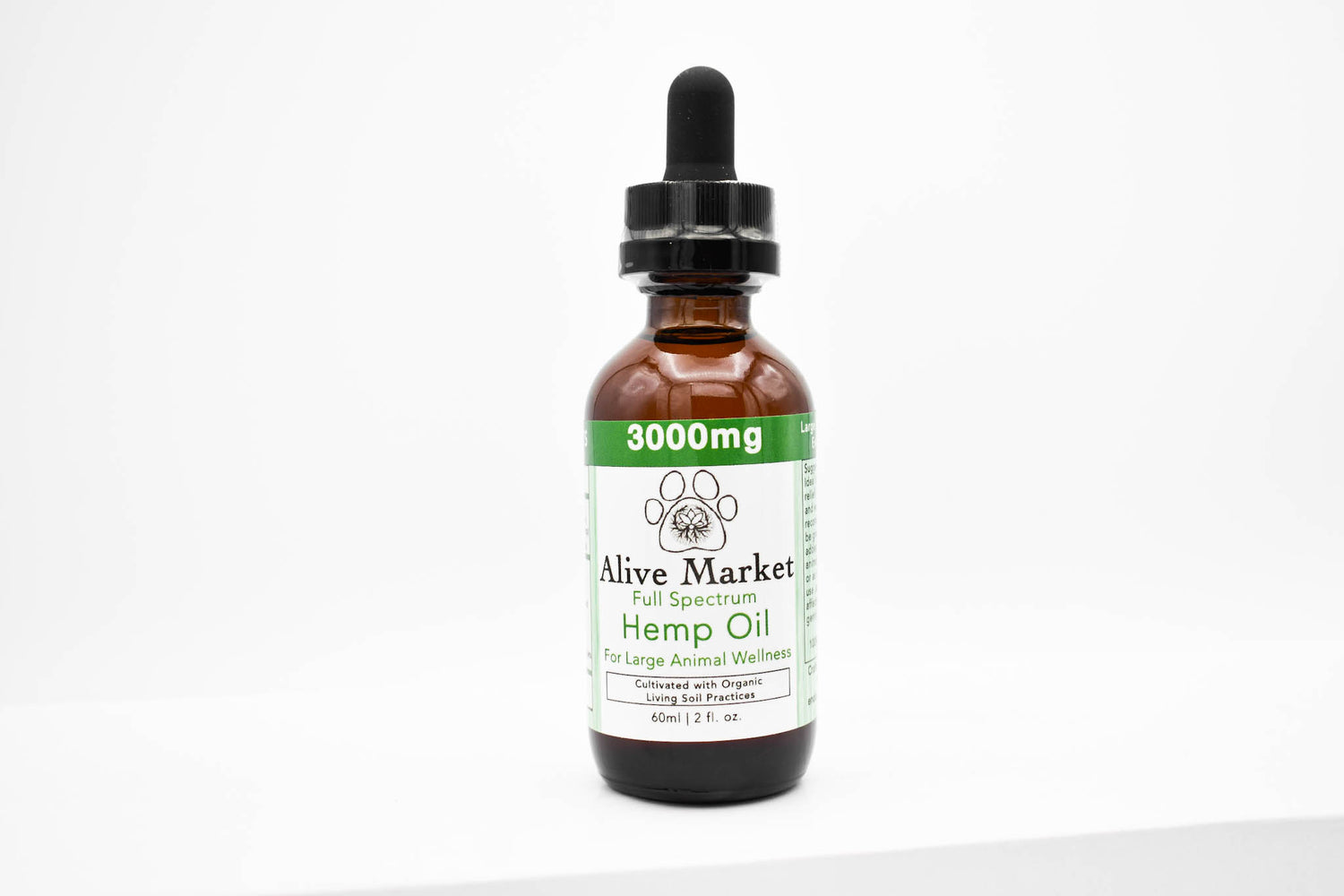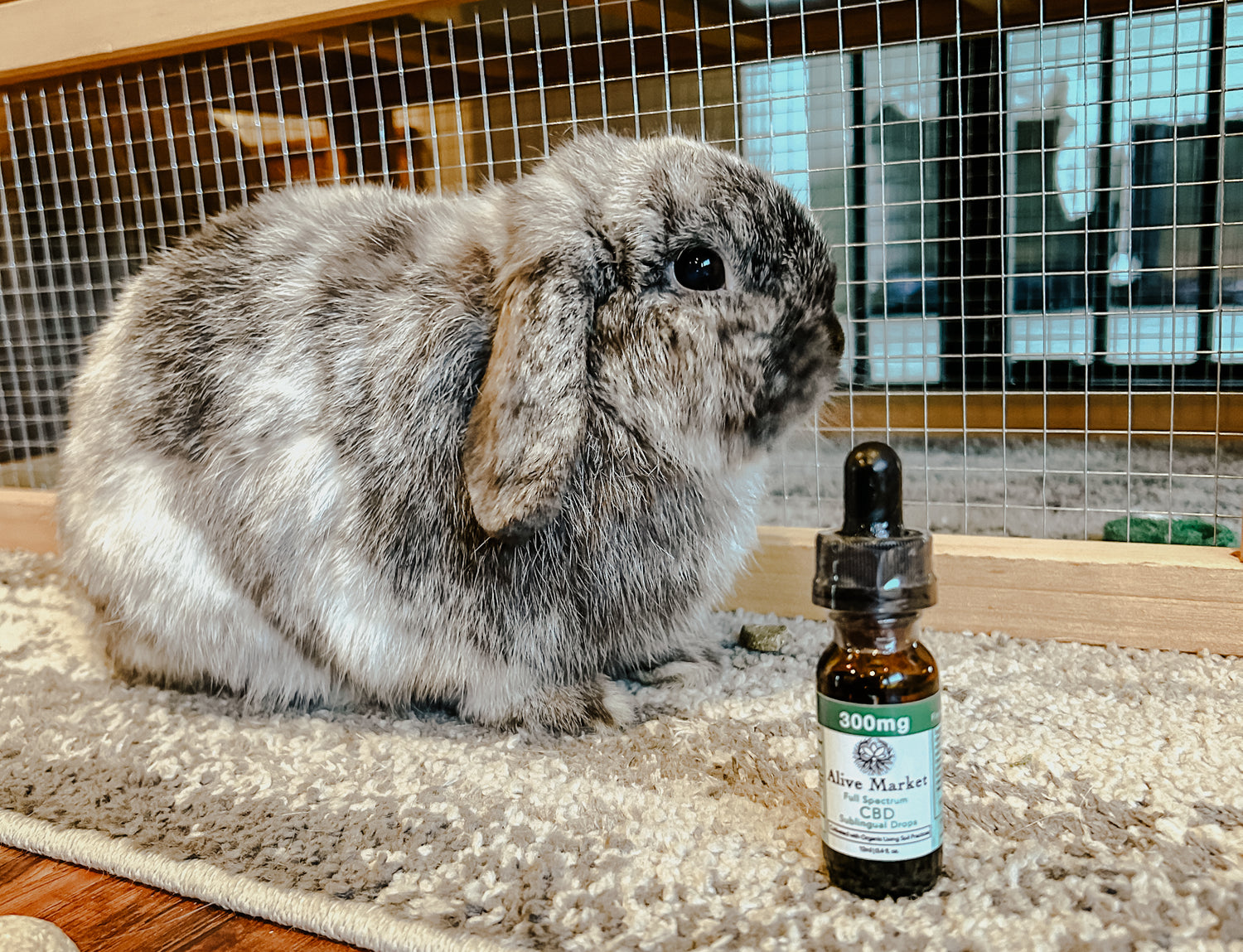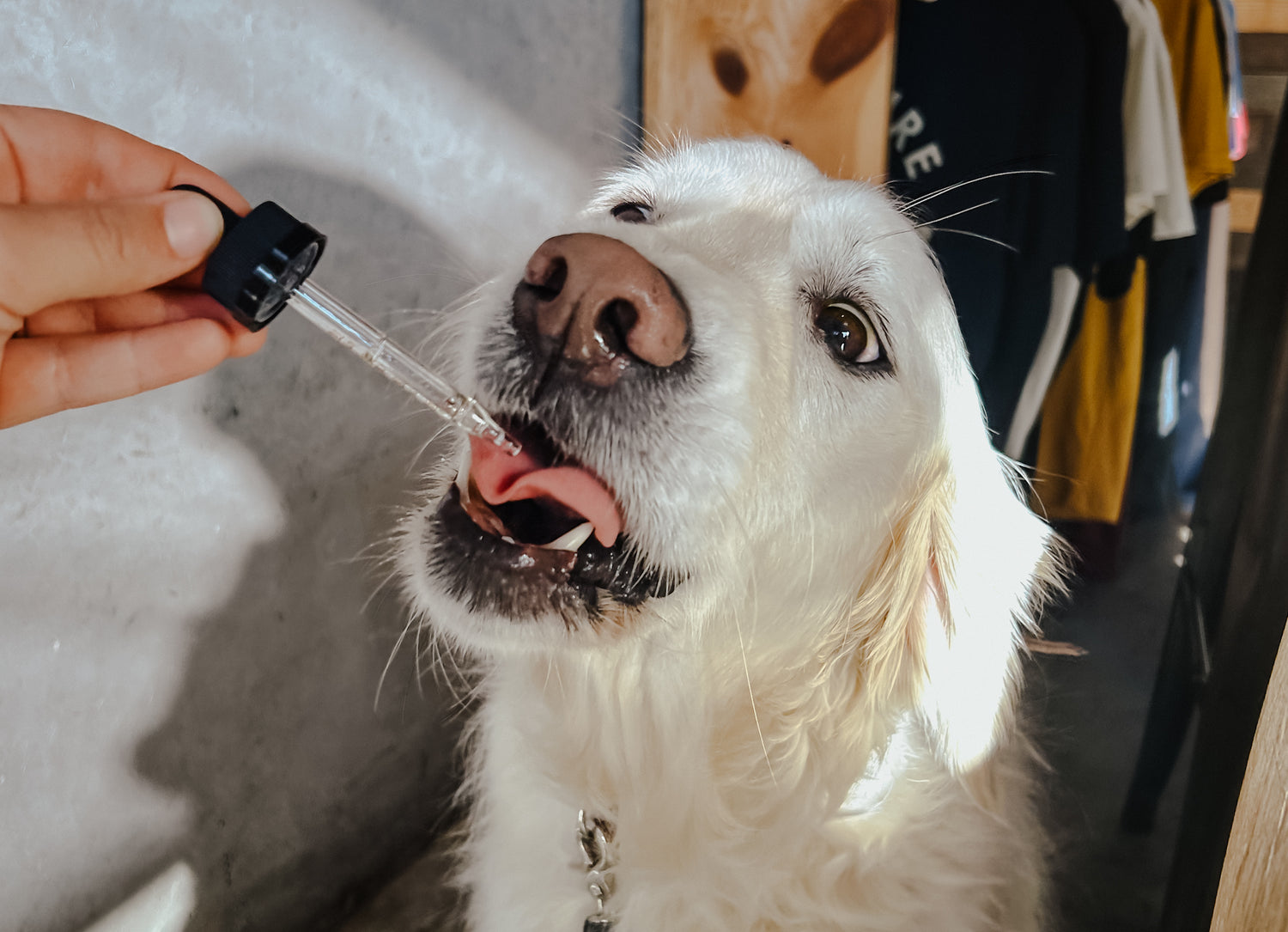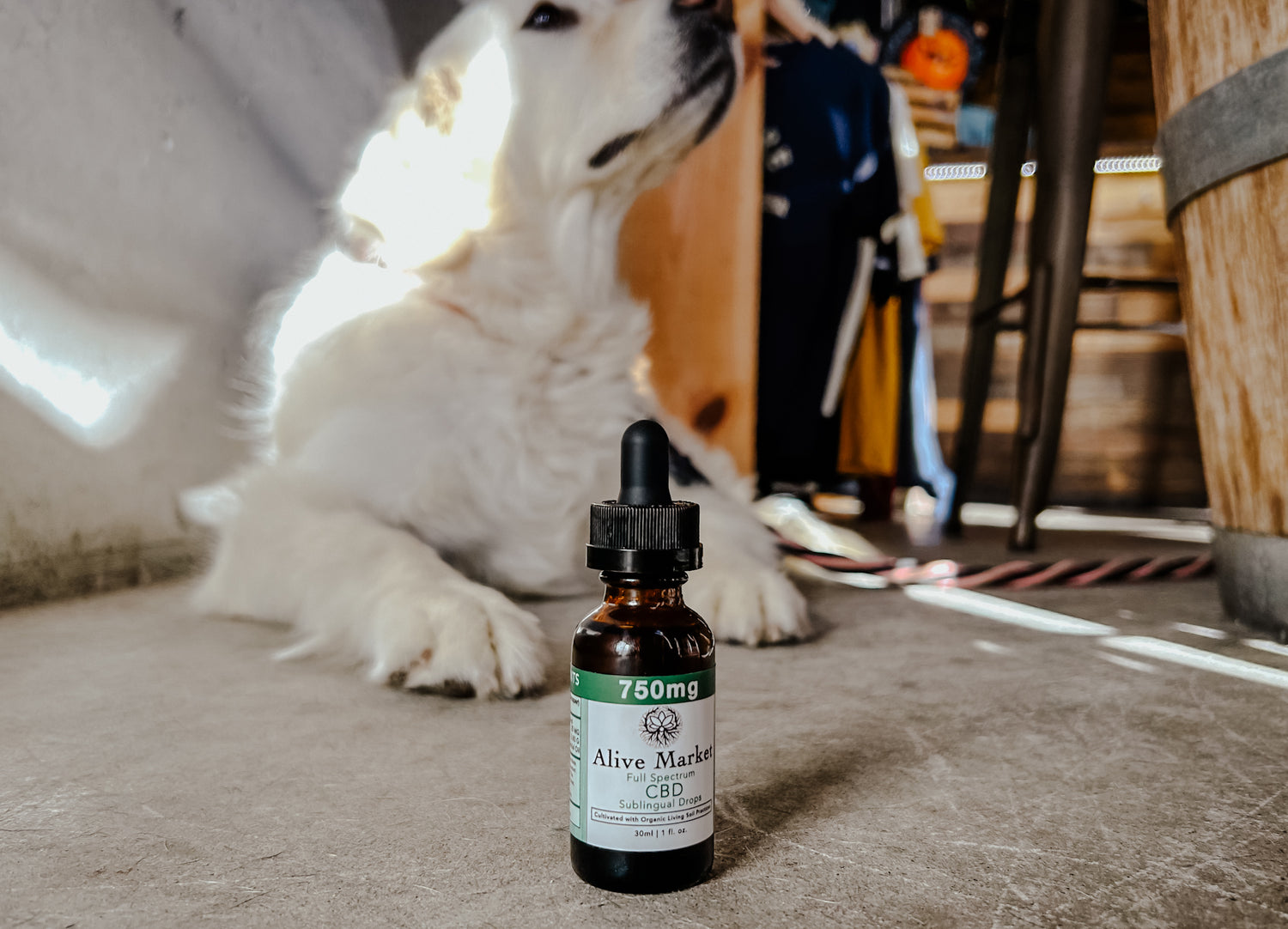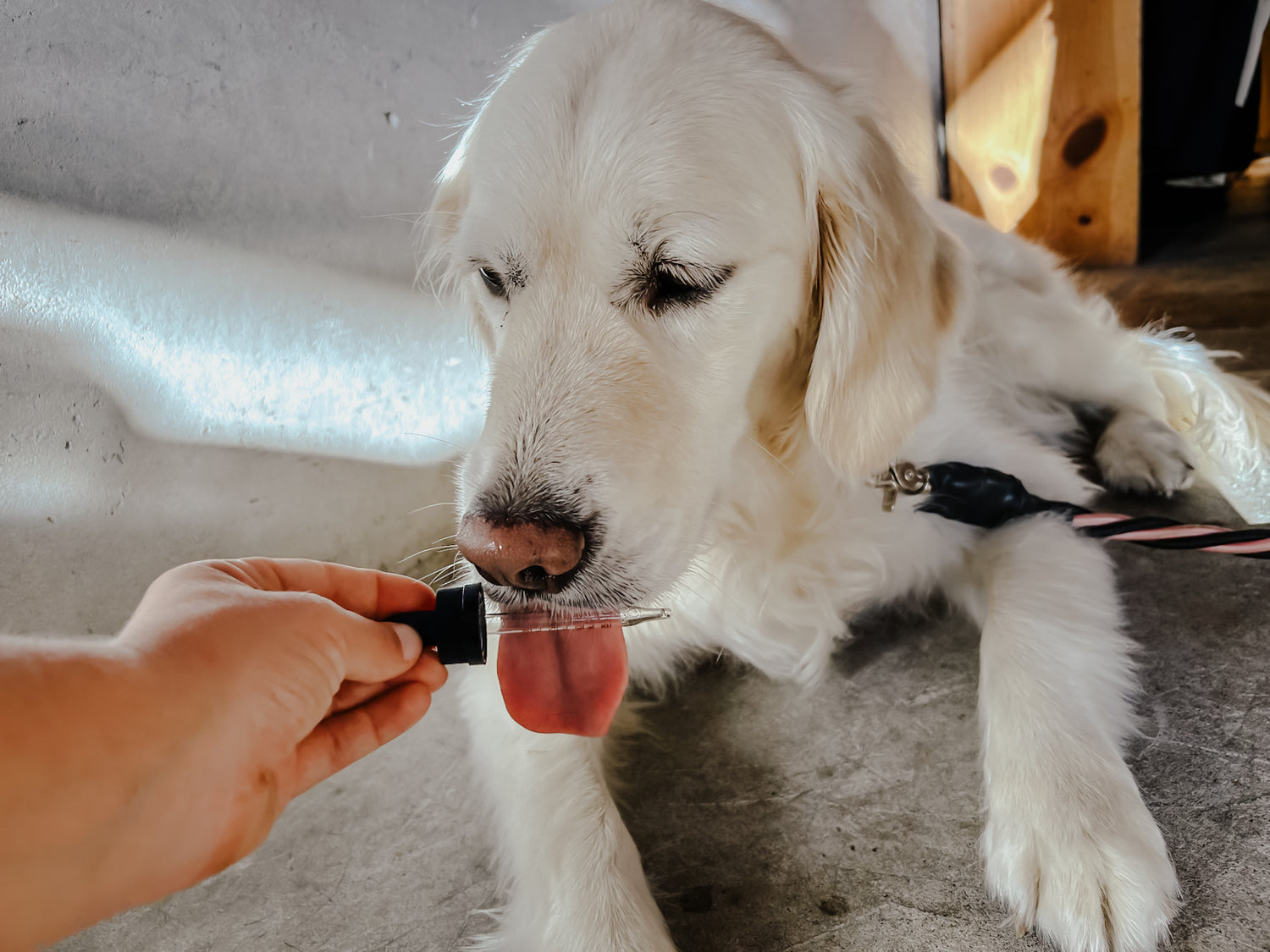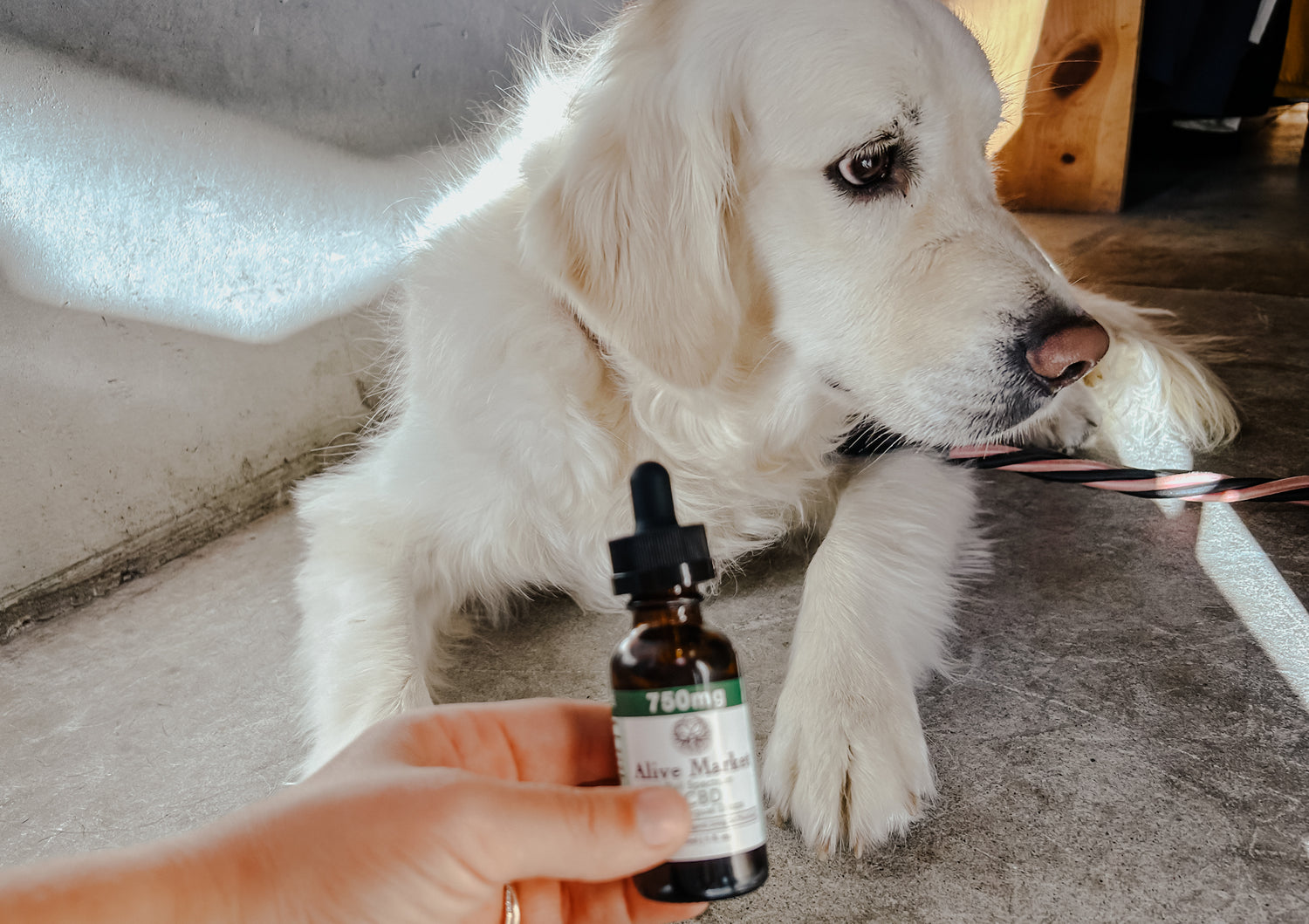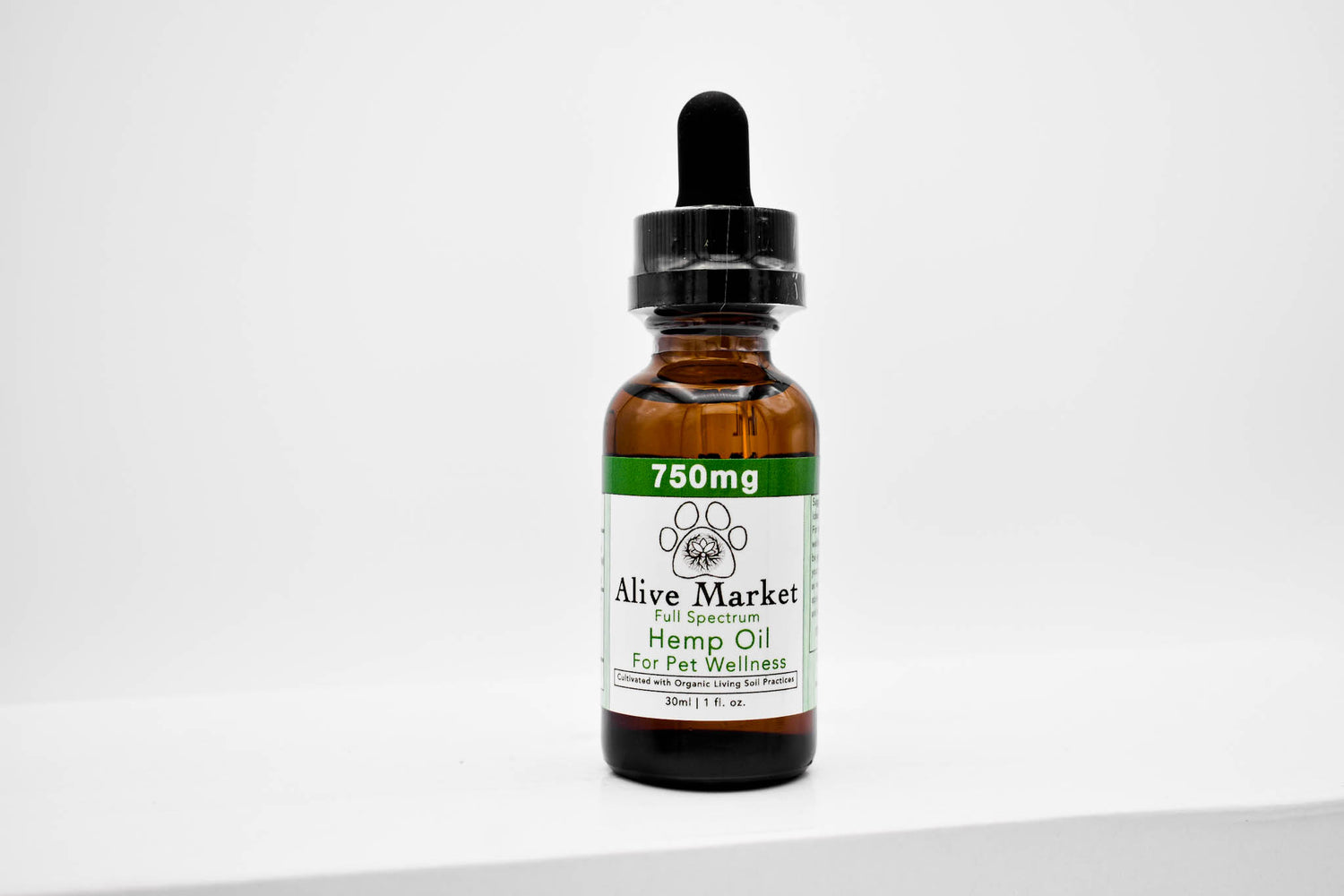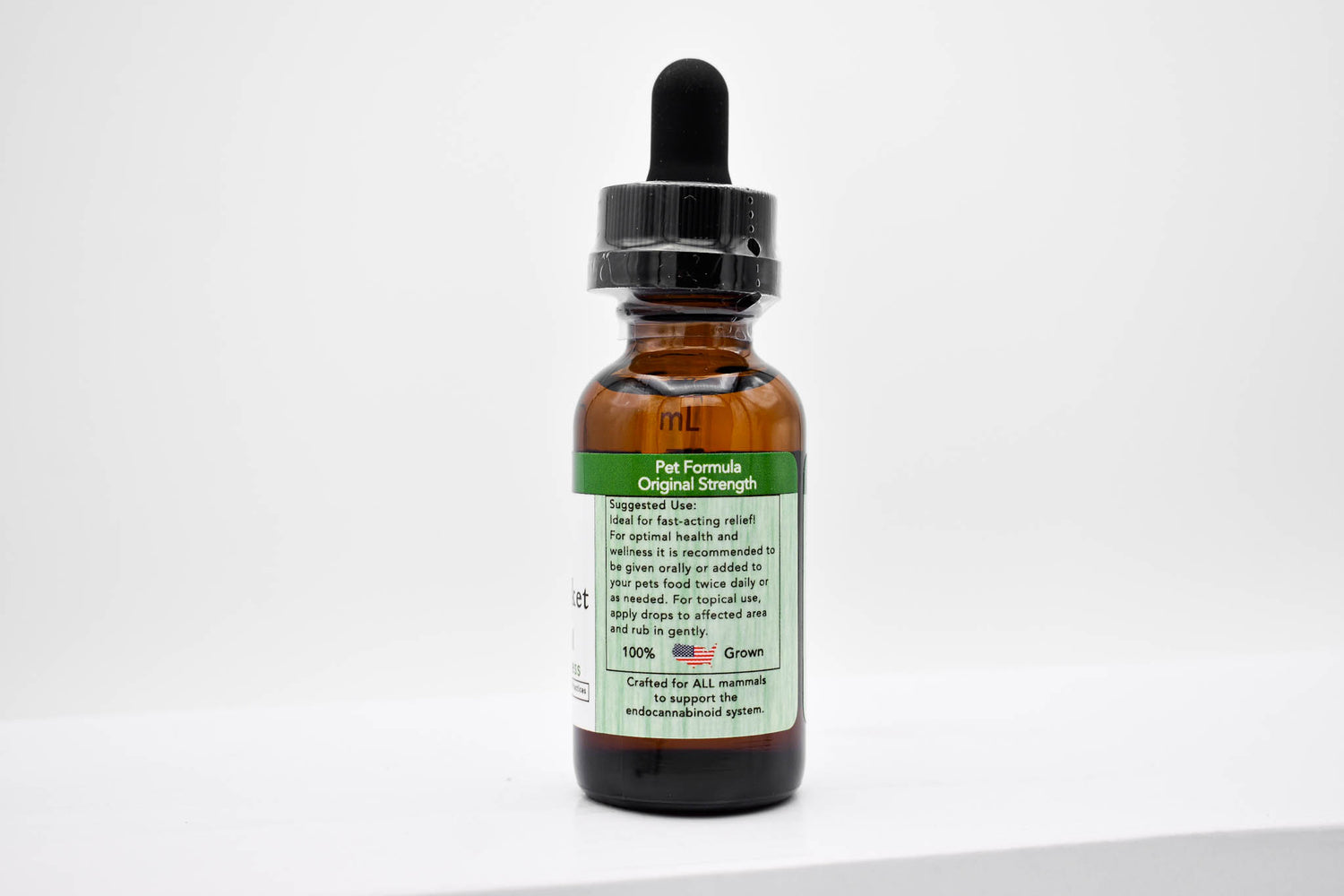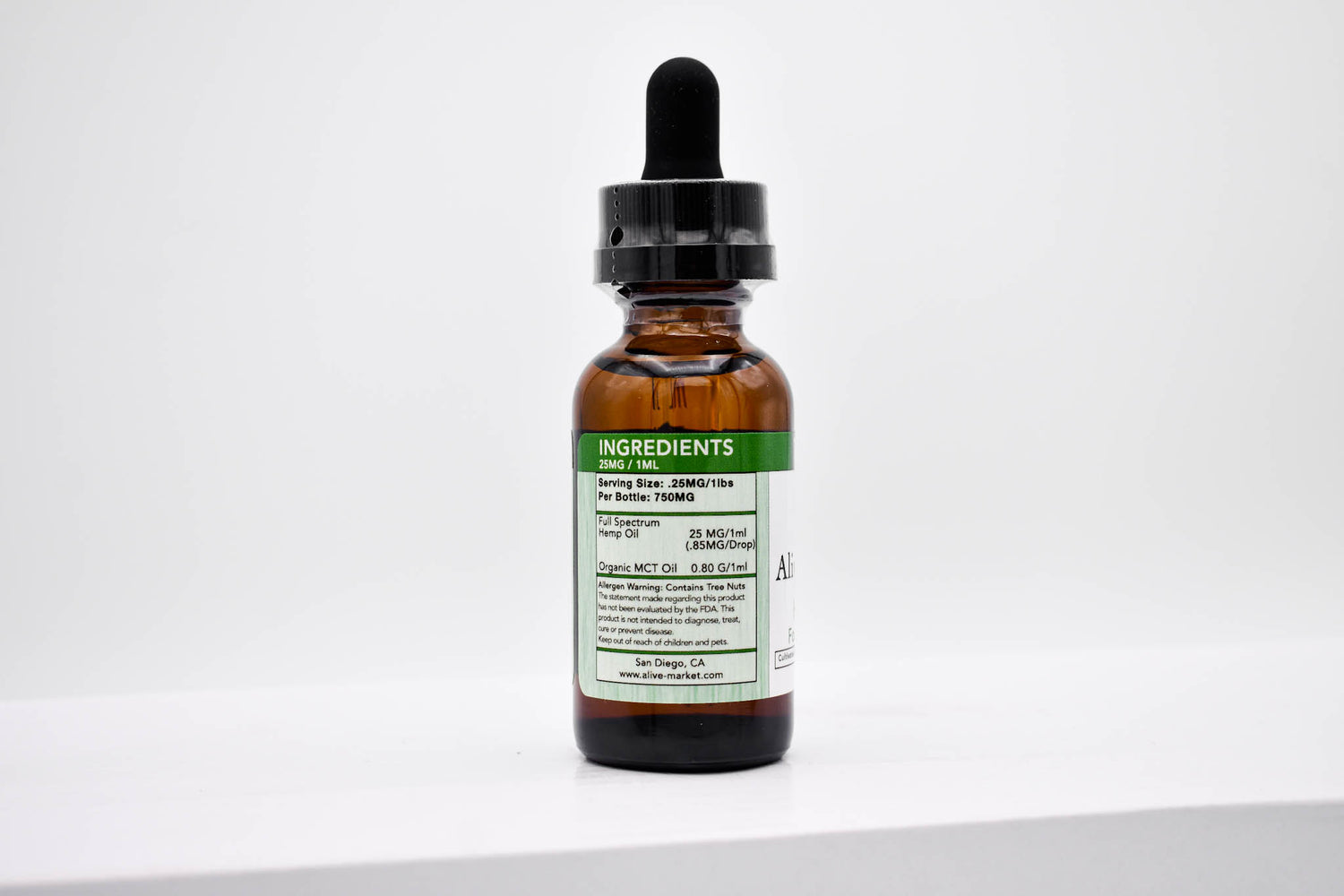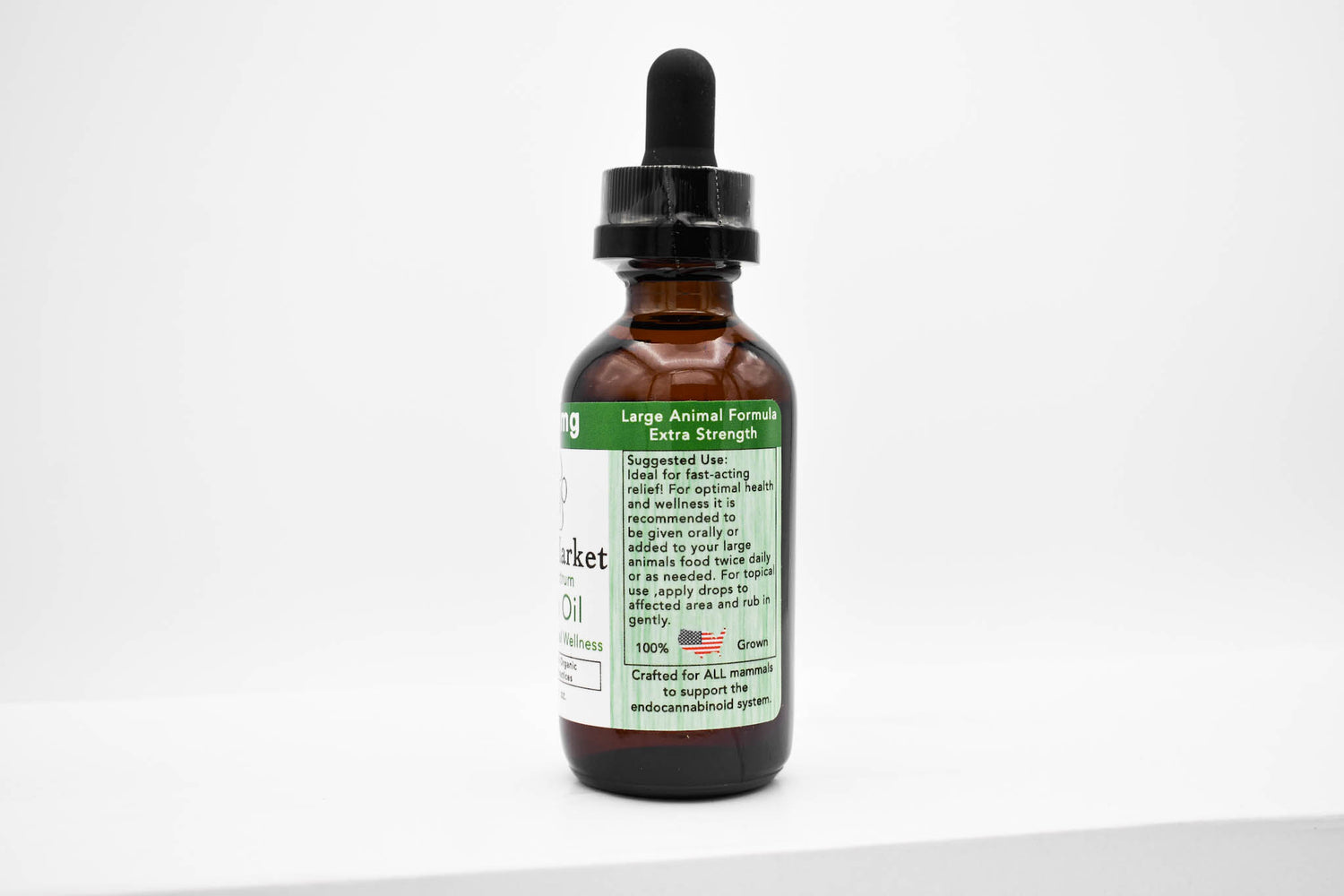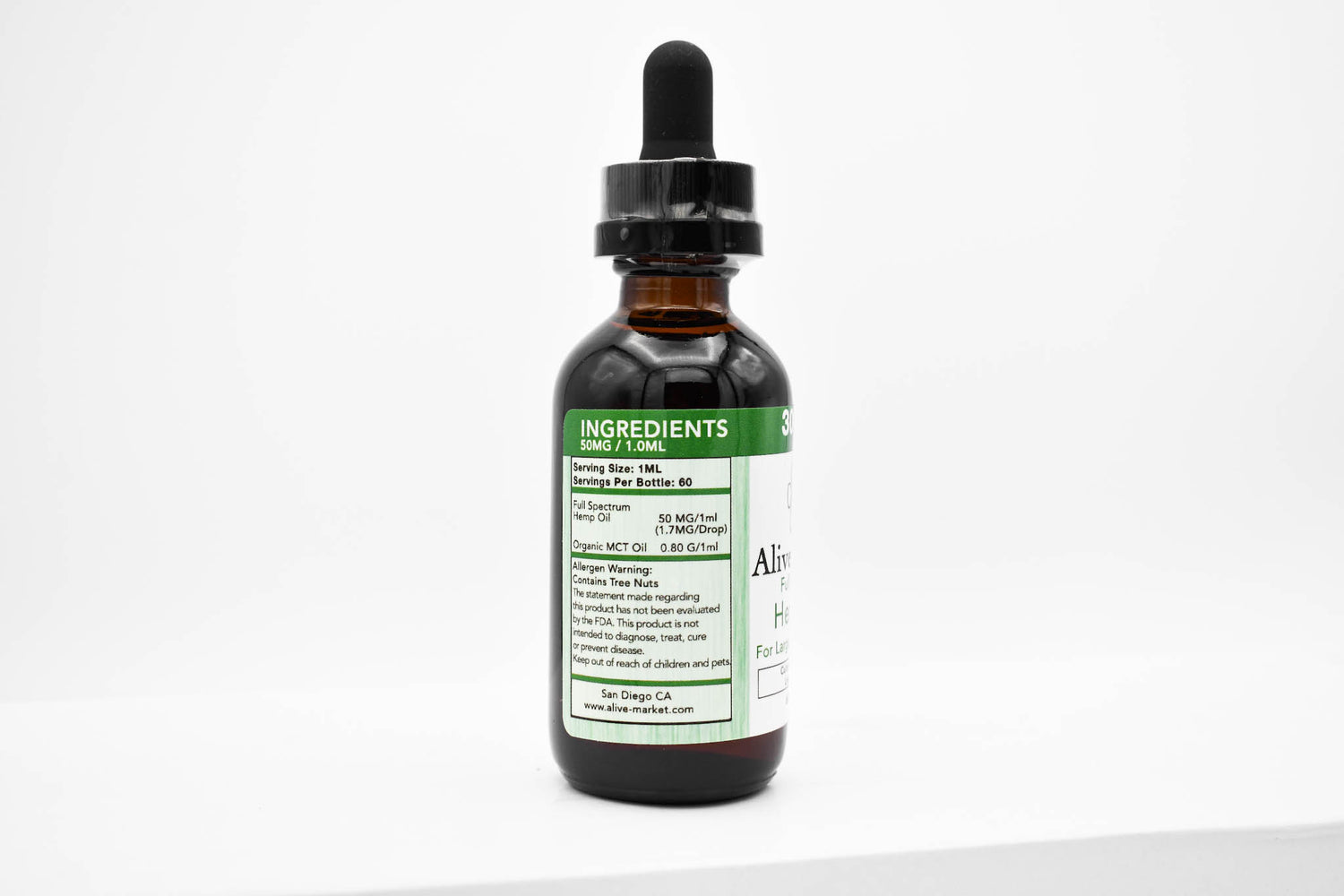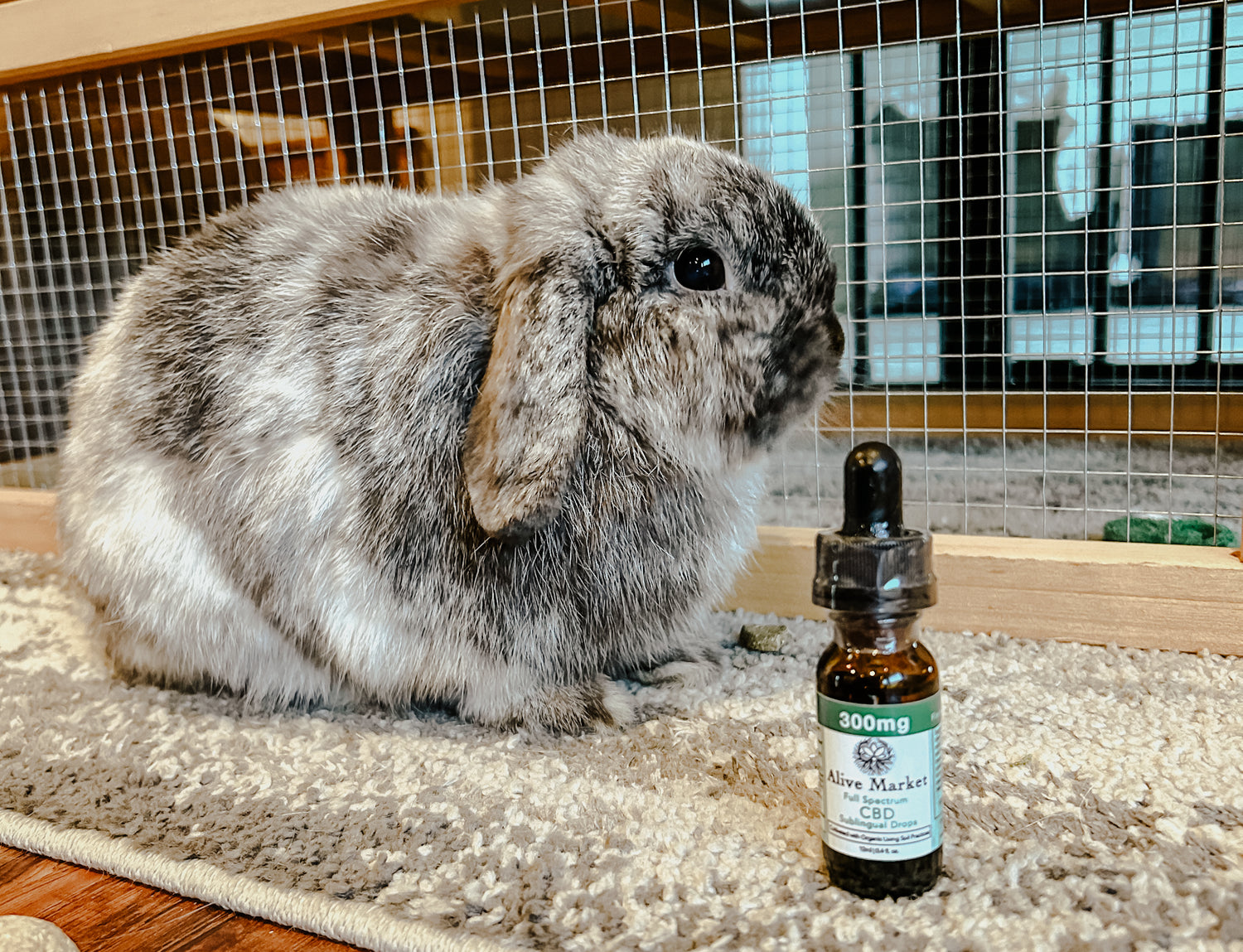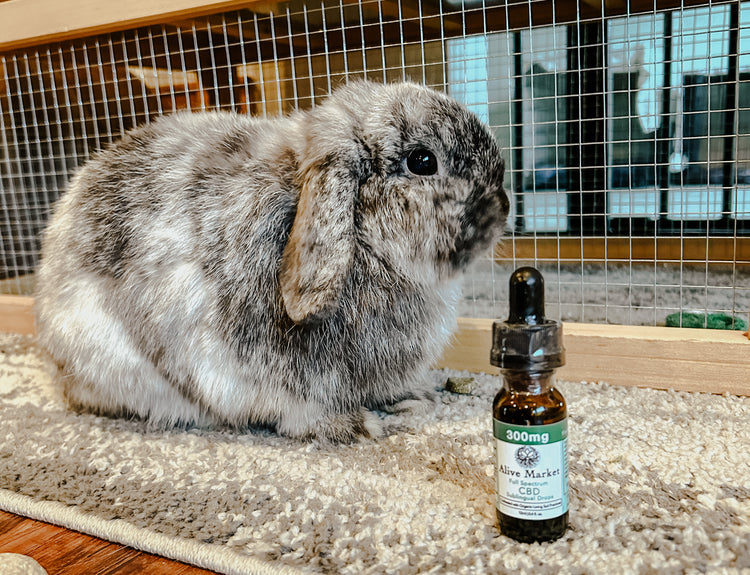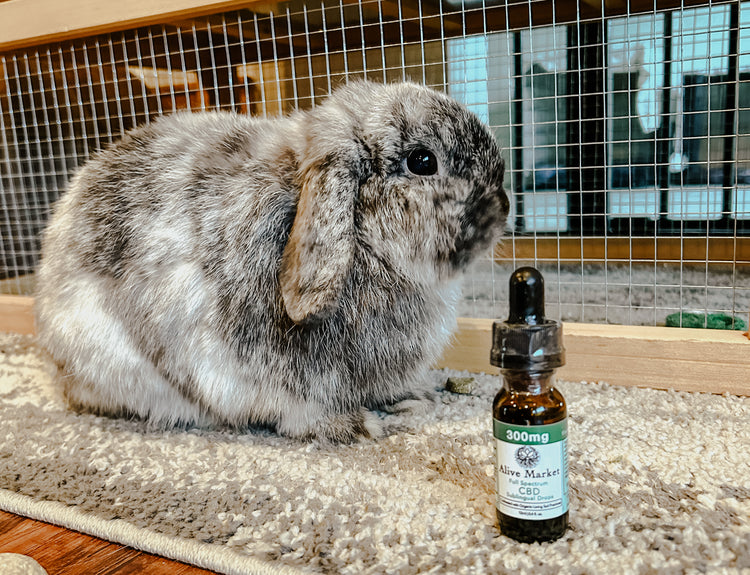When it comes to our beloved canine companions, a little slobber here and there is just part of the package. Dogs are known for their endearing quirks, and drooling happens to be one of them.
Whether it's triggered by the sight of a tasty treat or the anticipation of a playtime session, a dog's drooling is a natural physiological response. In this article, we'll delve into the fascinating world of home remedies for dog drooling, exploring why it's perfectly normal for dogs and how it often reflects their emotions and sensory experiences.
However, as with any aspect of our pets' behavior, it's important to recognize that excessive dog drooling might be a signal of an underlying health concern. So, while a bit of drool is par for the course, let's learn more about when it's time to pay closer attention to our furry friends' oral expressions.
Why do dogs drool excessively?

Dogs drool because it is a common physiological response to various circumstances. Dog's drooling begins if they catch a whiff of something delicious. Some species, such as Saint Bernards and bulldogs, have a greater capacity for drooling than others.
This may be due to the curvature of their faces. Additionally, a few health issues may affect the dog's drooling. Drooling dogs with esophageal or stomach problems may gulp or extend their necks when they swallow food or water.
Dogs have an interesting way of communicating, and dog drooling is one of the many ways they express themselves. Unlike humans, who primarily salivate in response to chewed food, dogs' drooling serves a broader range of purposes.
Here are some common reasons behind your furry friend's slobbery antics:
1. Appetite and Anticipation
Dogs will drool excessively when they're excited, such as when anticipating a dog treat or a meal, or even when they hear you open the dog food bag. Dogs are known for their keen sense of smell, and their excessive drooling can kick into high gear when they catch a whiff of something delicious. Whether it's the aroma of their favorite kibble, a savory treat, or even your own meal, their mouths start watering in anticipation.
2. Emotional Responses

Dogs are emotional creatures, and a dog's drool can reflect their feelings. Excitement, happiness, and even anxiety can trigger increased salivation in the salivary glands. For instance, when they eagerly await your return after a long day, you might notice drooling in dogs because of excitement.
3. Temperature Regulation
Dogs don't sweat like humans do, making it challenging for them to cool down in hot weather. Drooling in dogs is one way they dissipate heat. They spread saliva on their fur, which then evaporates and helps regulate their body temperature.
4. Nausea and Nervousness

Just like us, dogs might drool when they're feeling queasy or nervous. Car rides, vet visits, or unfamiliar environments can induce anxiety-related, sudden drooling in dogs.
The affected dog will drool excessively due to getting anxious. Stress causes drooling in dogs. For example, a common cause is being afraid of storms.
Drooling may be temporary if the cause is nausea and will stop when the upset stomach resolves.
5. Drooling Breeds and Anatomy
Some dog breeds are more prone to excessive drooling due to their moist mouths and facial structures. Breeds with loose, pendulous lips, like bulldogs and mastiffs, are more likely to manifest drooling in dogs because their mouths don't seal shut as efficiently as those of other breeds.
6. Dental Health

Dog's drooling is a normal occurrence, but excessive drooling in dogs can be a nuisance for pet owners and a sign of an underlying health problem.
Poor dental hygiene in a dog can lead to excessive drooling. Inflamed or infected gums, tooth decay, bad breath, infections, tartar buildup, or a foreign body stuck between teeth can cause discomfort, leading to increased salivation.
7. Breed-Specific Traits
Certain breeds, such as bloodhounds and St. Bernards, have historically been bred for roles that involve tracking or water rescue. Their drooling tendencies might have developed as a way to keep their noses and mouths moist for scent detection or to prevent dehydration.
8. Illness and Health Issues

While some dog's drool occasionally, sudden or severe changes in drooling patterns can be a sign of illness. Issues like mouth injury, infections, oral tumors, or gastrointestinal problems might lead to excessive salivation. Liver disease causes drooling.
Understanding why drooling in dogs happens can give you valuable insights into their emotions, health, and comfort. While a bit of slobber is generally harmless and even endearing, it's important to monitor the mouth and the drooling patterns for any significant changes that might warrant a closer look from a veterinarian.
Home Remedies for Dog Drooling Excessively
Home remedies for a dog's drooling (excessive drooling in dogs) will depend on what's causing the drooling in the first place. While dog drooling is often a normal and healthy part of canine behavior, sudden drooling excessively can be a cause for concern.
If you find yourself dealing with a slobbering pup that's taking the dog's drooling to the next level, there are several home remedies you can consider to help manage dog drools.
Are there any OTC remedies for dog drooling?
While there are commercial products marketed as remedies for excessive drooling, it's advised to consult your vet before trying any over-the-counter options.
Remember, these home remedies for dog drooling are not a substitute for professional veterinary care, especially if the drooling is accompanied by other worrisome symptoms.
However, for mild cases and general maintenance, these tips can make a difference:
1. Regular Dental Care

Just like humans, dogs benefit from good oral hygiene. Regular brushing of your dog's teeth can prevent dental issues like tooth decay that might contribute to excessive drooling. Invest in a dog-friendly toothbrush and toothpaste, and make it a positive and rewarding experience for your furry friend.
2. Adjusting Eating Routine
If your dogs tend to gulp down large meals quickly, it could lead to excess drooling. Consider feeding smaller, more frequent meals throughout the day. Slowing down mealtime can reduce the likelihood of excessive swallowing and treat excessive drooling.
3. Cool and Calm Environment

Dogs can become anxious or stressed due to environmental factors, leading to increased drooling. Create a comfortable and calming space for your dog, especially during stressful situations like thunderstorms or fireworks. Fans, air conditioning, and soothing music can help create a tranquil environment.
4. Stress Reduction
Dogs, just like humans, can experience stress. Engage in regular playtime, exercise, and interactive activities to keep your dog's mind and body active. Positive interactions and routines can go a long way in reducing anxiety-induced drooling.
5. Hydration

Dehydration can contribute to excessive drooling. Ensure your dog has access to clean and fresh water at all times. Proper hydration not only helps regulate saliva production but also supports overall health.
6. Herbal Home Remedies
Some herbs, such as chamomile, have calming properties that might help reduce stress and anxiety in dogs. Consult with your veterinarian before introducing any herbal remedies to your dog's routine to ensure they are safe and appropriate.
7. CBD (Cannabidiol)
CBD has gained popularity for its potential calming effects on dogs. Derived from hemp plants, CBD products designed for pets can help manage anxiety and stress-related behaviors, potentially leading to reduced drooling in anxious dogs. It's important to consult your vet before using CBD and to ensure you choose a reputable and quality product.
8. Regular Vet Check-ups
Prevention is key. Regular check-ups with your veterinarian can help catch potential dental or health issues early on. They can provide tailored guidance and recommendations based on your dog's individual needs. If your dog has difficulty swallowing, call your vet right away.
9. Doggie Bibs/Bandana

Tying dog bibs or bandanas around your dog's neck helps control your puppy's excess saliva levels. Put a bandana or bib on the back of the dog. Bibs can stop dogs' urine from spiking, clean up your floor or your seat, and they can be quickly removed. It's nice for your dog, too. Choose bands made of cotton or other textile materials that have good absorbency capabilities. Avoid nylons and synthetics, as they do not wick moisture efficiently and can cause rashes on dogs skin.
10. Rinsing out dog's mouths with Coconut oil or Herbal Tea
This could be a good way to soothe dogs who are suffering from mouth injury or irritation. This substance is known for having anti-inflammatory effects and aiding in the elimination of pain and itch-causing drooling. Coconut oil is good at combating bacteria, yeast, fungi, and parasitic and viral infections.
11. Feed a treat to Avoid Car sickness

A dog drooling in the car is often related to anxiety or motion sickness and car sickness. Sometimes when dogs drool from fear of traveling, you could give them treats when going for a ride, and then it makes them think of bringing them a car ride as a way of savoring a delicious snack. Mixing lemon extract and lemon juice into water is the easiest way to get the product. However, please be cautious; it actually worsens the situation.
12. Enhance Your Dog's Diet
It is essential that your dog eat well. A bad diet can result in drowsiness and gastrointestinal problems and cause severe allergic symptoms. If you want to ensure the dog eats the proper diet you need, then this is essential. You can also include probiotics and eosin to boost his immune system and improve the health of his mouth.
Monitoring Drooling Dogs Drool Patterns

Dog drool can be a symptom of many different things, including poor dental hygiene, mouth injury, motion sickness, nervousness, car sickness, upset stomach issues, and more.
Determine when the dog drools and what signs it has that are noticeable. Veterinary treatment should be sought immediately if the dog has a veterinary diagnosis. Keeping your dog hydrated by adding a good source of fresh hydration to it is most effective.
Prevention and Maintenance

Preventing excessive drooling in your dog's mouth goes hand in hand with maintaining their overall health and well-being. While home remedies can be effective in managing mild cases, the foundation of a slobber-free existence for your furry companion lies in proactive care and a balanced lifestyle.
1. Regular Vet Check-ups
Just as regular visits to the doctor keep us in good health, dog lovers should always take routine check-ups with a veterinarian, as they are essential for your dog's well-being. Regular examinations of your dog's mouth allow your vet to catch any potential dental, oral, or health issues before they escalate into bigger problems. Early detection can lead to timely intervention and a happier, healthier pup.
2. Dental Hygiene
Good dental care for your dog's teeth regularly plays a pivotal role in preventing excessive drooling. Dog owners should provide regular brushing, dental chews, and appropriate toys that can help maintain your dog's mouth and oral health. Poor dental hygiene can lead to dental disease, gum disease, infections, and discomfort, which in turn can trigger increased dog drool.
3. Balanced Nutrition
A well-balanced diet tailored to your dog's age, size, and breed can contribute to their overall health and minimize factors that may lead to excessive drooling. High-quality dog food can provide the necessary nutrients for healthy salivary glands and oral tissues.
4. Exercise and Mental Stimulation
A tired dog is a happy dog. Regular exercise not only keeps your dog physically fit but also helps alleviate stress and anxiety-related drooling. Mental stimulation through interactive toys, puzzles, and training sessions can also reduce excessive dog drooling.
5. Stress Management
Dogs are sensitive to their surroundings and can experience stress just like humans. Whether it's separation anxiety, loud noises, or unfamiliar environments, helping your dog manage stress can significantly impact their drooling tendencies. Provide a safe haven and engage in activities that promote relaxation.
6. Proper Hydration
Adequate hydration is vital for saliva production and overall health. Ensure your dog always has access to clean, fresh water. In hot weather or during physical activity, pay extra attention to their hydration needs.
7. Quality Rest
Dogs need quality sleep to recharge. Provide a comfortable and cozy sleeping space where your dog can relax undisturbed. A well-rested pup is less likely to experience stress-related excessive drooling.
8. Bonding and Affection
Spend quality time bonding with your dog. Positive interactions and affection can boost your dog's emotional well-being and reduce excessive drooling.
Remember, every dog is unique, and what works best for one may differ for another. Tailor your approach to your dog's individual needs, and don't hesitate to consult with your veterinarian for personalized advice. By combining proactive measures, a balanced lifestyle, and a watchful eye, you can create a drool-friendly environment that keeps your furry friend happy, healthy, and slobber-free.
Conclusion
Through this article, we've delved into a range of home remedies to help manage and stop excessive drooling. From practicing regular dental care to creating a calm environment and considering the use of CBD, these strategies can make a difference in your dog's slobber levels. However, it's crucial to remember that professional veterinary care is irreplaceable, especially if your furry friend's drooling is accompanied by unusual behavior or worrisome symptoms.
So, as you wipe away a little drool from your pup's chin, know that their slobbery expressions are just one of the many ways they communicate their feelings and needs. With your attention, care, and partnership with your veterinarian, you're well-equipped to navigate the world of dog drooling and provide the best possible life for your furry companion.


